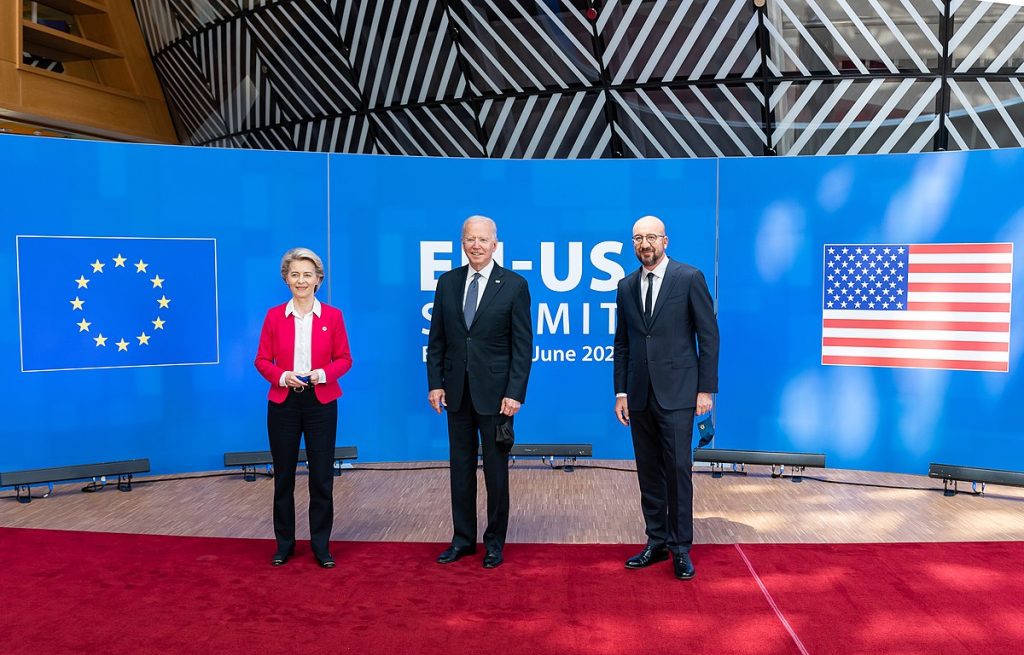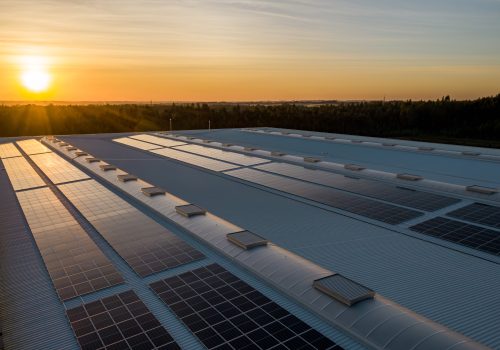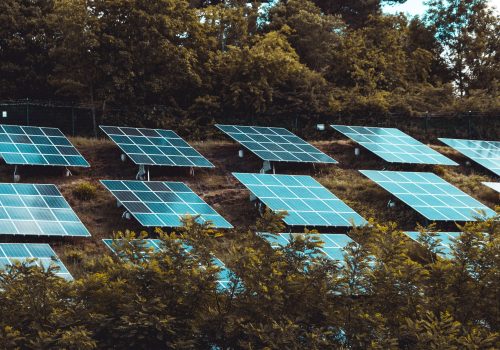The recently-signed Inflation Reduction Act (IRA) of 2022 catapults the United States into decisive and overdue climate action by cutting greenhouse gas emissions by 40 percent by 2030 compared to 2005 levels. Without it, the carbon reduction rate would be limited to 31 percent. Of equal importance is the law’s contribution to energy security at home and abroad, including the following:
- Support for renewables, transmission systems, electric vehicles, and efficiency deployments to reduce US reliance on fossil fuels.
- New federal land leases for oil and gas drilling to unlock homegrown development options to help meet domestic demand and allies’ energy needs abroad.
- Incentives for abatement mechanisms and clean energy solutions such as carbon capture, hydrogen, and methane reduction tools to solidify the role US oil and gas can play in a decarbonized world.
- Efforts to lower carbon intensity in manufacturing to foster resiliency and competitiveness across the industry.
However, the absence of funding for international cooperation on these initiatives in the IRA is a missed opportunity to amplify the climate and security impacts of this historic legislation.
Coordinated action to bolster energy security and decarbonization efforts is particularly urgent as Russia weaponizes energy exports, resulting in unprecedented supply shortages and skyrocketing prices in Europe against the backdrop of the Kremlin’s unprovoked war in Ukraine. As the United States commits to leading on climate and security solutions at home, partnerships with allies will be critical for advancing IRA’s objectives: the United States will be more successful in scaling up new technologies, building new markets for these innovations, exchanging best practices, and synchronizing standards and regulations alongside allies, rather than doing so unilaterally.
Existing foreign affairs engagement and international aid falls heavily on the Department of State, the United States Agency for International Development, and the International Development Finance Corporation, encompassing a multitude of programs in addition to climate and security work. Other federal agencies, such as the Department of Energy (DOE), possess limited funding to bring their unique combination of science, research, policy, and commercialization to the international stage. For example, DOE’s International Affairs budget is well below $100 million.
A broader budget would unleash opportunities for furthering climate and energy security work through DOE’s international working groups, meetings, activities coordination, and National Labs research partnerships. Much of DOE’s international engagement comprises of bilateral cooperation, such as the US-Poland Energy Dialogue, with several multilateral (including regional) efforts such as the East Mediterranean Gas Forum. In some cases, the bilateral scope of the partnership is limited by funding. With an expanded budget, bilateral efforts can grow into regional and multilateral bodies and produce greater results. For example, the DOE’s national labs are exploring a model to transition to 100 percent renewable energy with Lithuania, inspired by the LA100 study. As the Baltic states move to disconnect from the Russian electricity grid while integrating battery technologies at utility scale, a broader regional systems assessment would shine light on how Northeast Europe can securely export renewable energy to the greater European grid.
Moreover, growing the breadth and scope of DOE’s International Affairs initiatives would fuel stronger and more continuous engagement with existing multilateral efforts such as the Partnership for Transatlantic Energy and Climate Cooperation, the US-EU Energy Council, the Three Seas Initiative, the Energy Ministerial/Mission Innovation, and the US-EU Trade and Technology Council, as well as closer coordination on climate and security across US agencies. These mechanisms and fora are crucial for creating coherent regulatory environments for innovative solutions and transparent carbon measurements. Consistent regulatory guidelines will reduce cost and risk for international market entrants developing emerging technologies like hydrogen. Shared methane emission tracking and mitigation standards will ensure that US liquefied natural gas (LNG) exports align with the EU’s climate laws and gain competitive advantage over exporters with higher carbon intensity. Additionally, such cooperation tools would be vital for working to support Ukraine’s energy security and clean energy resources development during the war and in the aftermath, through the US-Ukraine Energy Cooperation Initiative and other platforms.
The IRA is not a magic bullet to address every climate and security issue, but it is the best legislative shot the United States has for shifting the US economy towards a more reliable, affordable, and equitable energy system. Working with allies around the world will be critical for enlarging the IRA’s ability to accelerate decarbonization and support supply security, innovation, and resilience at home and abroad.
Olga Khakova is deputy director for European energy security at the Atlantic Council Global Energy Center.
Meet the author
Related content
Learn more about the Global Energy Center

The Global Energy Center develops and promotes pragmatic and nonpartisan policy solutions designed to advance global energy security, enhance economic opportunity, and accelerate pathways to net-zero emissions.
Image: President Biden with Ursula von der Leyen, president of the European Commission, and Charles Michel, president of the European Council. (The White House, Wikimedia Commons, CC0 1.0) https://creativecommons.org/publicdomain/zero/1.0/





